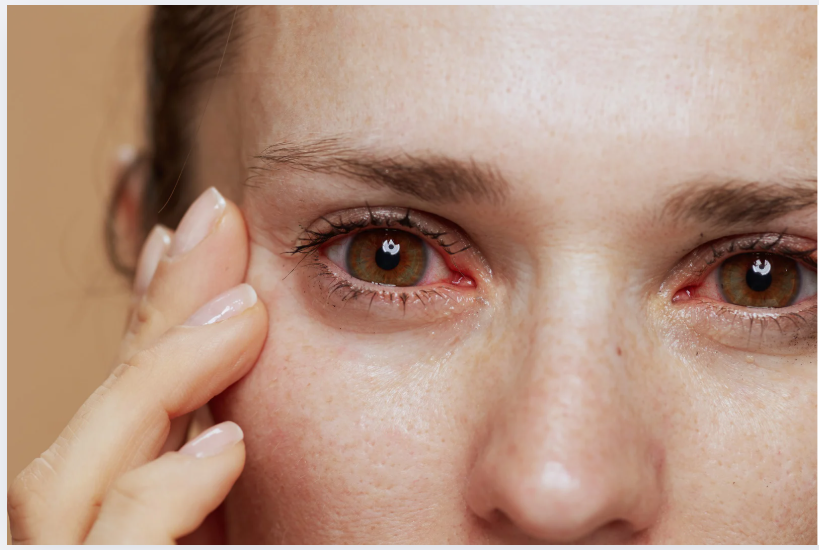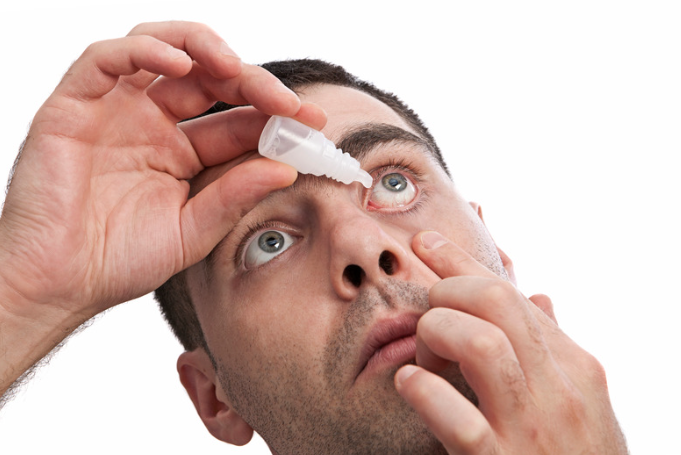Essential Nutrients to Prevent Dry Eyes: What to Eat for Healthy Eyes
Dry eyes are a common condition that can cause discomfort, irritation, and even long-term damage if not addressed properly. While using the best eye drops for dry eyes is a crucial part of managing symptoms, diet and hydration also play a significant role in preventing and alleviating dry eyes. Incorporating the right nutrients and maintaining proper hydration levels can help improve tear production and overall eye health. In this blog, we’ll explore the impact of diet and hydration on dry eyes, the best foods to include in your daily meals, and how dry eye drops and eye care drops can complement your efforts.
Understanding Dry Eyes and Their Causes
Before diving into dietary and hydration tips, it’s important to understand why dry eyes occur. The condition happens when your eyes don’t produce enough tears or when tears evaporate too quickly. Several factors contribute to this problem, including:
Aging – Tear production naturally decreases with age.
Screen Time – Staring at screens for long periods reduces blinking, leading to dryness.
Environmental Factors – Air conditioning, heating, wind, and smoke can dry out the eyes.
Dietary Deficiencies – Lack of essential nutrients like omega-3 fatty acids and vitamin A can impact tear quality.
Dehydration – Not drinking enough water can reduce tear production.
Medical Conditions – Conditions like diabetes, thyroid disorders, and autoimmune diseases can contribute to dry eyes.
Using the best eye drops for dry eyes is a quick way to relieve symptoms, but making lifestyle changes, particularly in diet and hydration, can provide long-term benefits.
The Role of Hydration in Preventing Dry Eyes
Why Hydration is Crucial for Eye Health
Water is essential for overall health, including maintaining moisture in the eyes. Dehydration can lead to a decrease in tear production, making the eyes feel gritty and irritated. When your body is properly hydrated, it can produce sufficient tears to keep the eyes lubricated.
How Much Water Should You Drink?
Experts recommend drinking at least 8-10 glasses of water per day to stay hydrated. If you spend long hours in air-conditioned environments or consume caffeine and alcohol (which dehydrate the body), you may need to increase your water intake.
Other Hydrating Options
Besides plain water, you can stay hydrated with:
Herbal teas (chamomile, green tea)
Coconut water
Fresh fruit and vegetable juices
Broths and soups
Drinking enough fluids, along with using dry eye drops when necessary, can help maintain proper moisture levels in your eyes.
Nutrients That Help Prevent Dry Eyes
A balanced diet rich in essential nutrients can significantly improve eye health. Here are the key nutrients that help prevent dry eyes and their best food sources:
1. Omega-3 Fatty Acids
Omega-3s help reduce inflammation and improve the quality of tears. Studies show that a deficiency in omega-3 fatty acids can lead to dry eyes.
Best Sources:
Fatty fish (salmon, tuna, mackerel)
Flaxseeds and chia seeds
Walnuts
Algal oil (for vegetarians)
2. Vitamin A
Vitamin A is essential for maintaining a healthy tear film. A deficiency can lead to dry, irritated eyes.
Best Sources:
Carrots
Sweet potatoes
Spinach and kale
Liver and egg yolks
3. Vitamin C
Vitamin C helps reduce oxidative stress in the eyes and supports tear production.
Best Sources:
Oranges and citrus fruits
Bell peppers
Strawberries
Kiwi
4. Vitamin E
Vitamin E protects the eyes from oxidative damage and can help improve tear quality.
Best Sources:
Almonds
Sunflower seeds
Avocados
Spinach
5. Zinc
Zinc plays a role in maintaining eye health by supporting tear production.
Best Sources:
Meat and poultry
Shellfish
Legumes (lentils, chickpeas)
Dairy products
6. Lutein and Zeaxanthin
These antioxidants protect the eyes from blue light damage and help reduce the risk of dry eyes.
Best Sources:
Leafy greens (spinach, kale)
Corn
Egg yolks
Foods to Avoid for Dry Eyes
Just as some foods help improve tear production, others can worsen dry eyes by increasing inflammation or dehydration. Limit or avoid:
Processed foods – High in preservatives and unhealthy fats
Sugary foods – Excess sugar can contribute to inflammation
Alcohol and caffeine – Dehydrate the body and reduce tear production
Fried foods – Increase oxidative stress, affecting tear quality
Incorporating a nutrient-rich diet while using eye care drops can help maintain eye moisture and reduce irritation.

Additional Tips to Prevent Dry Eyes
In addition to diet and hydration, follow these habits for better eye health:
Blink More Often – Especially when using digital screens.
Use a Humidifier – Adds moisture to dry indoor air.
Take Breaks from Screens – Follow the 20-20-20 rule: Look 20 feet away every 20 minutes for 20 seconds.
Wear Sunglasses – Protect your eyes from wind and UV exposure.
Get Regular Eye Checkups – Detect and address any underlying issues early.
The Link Between Gut Health and Dry Eyes
While diet plays a direct role in maintaining eye moisture, emerging research suggests that gut health also impacts tear production and eye health. A healthy gut microbiome supports proper nutrient absorption, reducing inflammation throughout the body—including the eyes.
How Poor Gut Health Can Contribute to Dry Eyes
An imbalance of gut bacteria, known as dysbiosis, can lead to chronic inflammation, which may worsen dry eyes. Conditions like leaky gut syndrome can prevent essential eye-friendly nutrients (such as omega-3s, vitamins A and E, and zinc) from being properly absorbed, reducing tear quality.
Foods to Support Gut and Eye Health
To improve both gut health and dry eyes, include:
Fermented foods (yogurt, kefir, kimchi, sauerkraut) – Rich in probiotics, they support a healthy gut microbiome.
Prebiotic-rich foods (garlic, onions, bananas, asparagus) – Feed beneficial gut bacteria.
Bone broth – Contains collagen and amino acids that support gut lining and overall hydration.
Leafy greens and fiber-rich foods – Help regulate digestion and reduce inflammation.
By improving gut health, you enhance nutrient absorption, ultimately benefiting your tear glands and reducing dry eye symptoms.
The Role of Sleep in Preventing Dry Eyes
Sleep is another often-overlooked factor in dry eye prevention. Poor sleep quality can decrease tear production and increase eye strain. If you wake up with dry, irritated eyes, your tear film may not be replenishing properly overnight.
Sleep Tips for Better Eye Hydration
Keep your bedroom humidified – Use a humidifier to maintain moisture in the air.
Use a sleep mask – Protects the eyes from excessive airflow (especially if you sleep under a fan or air conditioning).
Follow a regular sleep schedule – Consistency helps regulate tear production.
Avoid screens before bed – Blue light can strain your eyes and reduce natural tear secretion.
Pairing good sleep hygiene with the best eye drops for dry eyes before bedtime can help keep your eyes hydrated throughout the night.
When to See an Eye Doctor for Dry Eyes
Despite following a healthy diet, drinking enough water, and using the best eye drops for dry eyes, some individuals may still experience persistent dry eye symptoms. If this happens, it’s crucial to consult an eye specialist.
Signs You Need Professional Help
Persistent redness and irritation despite using dry eye drops
Blurred vision or difficulty focusing
Severe eye pain or burning sensation
Excessive tearing (a sign of poor tear quality)
Sensitivity to light
A doctor can recommend advanced treatments, such as prescription eye care drops, punctal plugs (to prevent tear drainage), or even light therapy for chronic dry eye syndrome.
Final Thoughts: A Holistic Approach to Managing Dry Eyes
The best way to manage dry eyes is through a holistic approach that includes:
Hydration – Drink plenty of water to maintain moisture balance.
Nutrition – Include eye-friendly nutrients like omega-3s, vitamins A, C, and E, and zinc.
Gut Health – Consume probiotics and fiber-rich foods for better nutrient absorption.
Sleep Hygiene – Ensure proper rest and moisture protection for your eyes overnight.
Herbal Remedies – Use natural solutions like chamomile and aloe vera for extra relief.
Best Eye Drops for Dry Eyes – Choose high-quality, preservative-free dry eye drops for quick relief.
By combining these strategies, you can prevent and reduce dry eyes, improving overall eye health and comfort. If symptoms persist, consult an eye specialist for personalized treatment options.
Take Action for Your Eye Health Today!
Start by drinking more water, eating eye-nourishing foods, and using the best eye drops for dry eyes to maintain hydration and prevent irritation. Your eyes will thank you for it!







